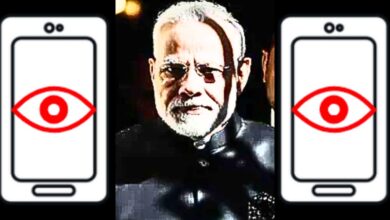As COVID-19 cases rise, places of worship take cautious steps before reopening
Having sanitised their premises and equipped with measures to implement social distancing norms, places of worship in Delhi are ready to throw their doors open to the faithful from Monday after remaining closed for nearly two and a half months due to the lockdown prompted by the COVID-19 pandemic.
Due to the surge here in cases of coronavirus infection, various steps have been taken by the heads and management bodies of prominent shrines in the city that draw huge numbers of devotees, such as setting up sanitisation tunnels, prohibiting prasad distribution and floral offerings, using thermal guns to measure body temperatures, removing carpets and promoting the use of the Aarogya Setu app.
The Shahi Imam of Jama Masjid Syed Ahmed Bukhari said all the safety measures have been taken at the historical mosque that will reopen on Monday. He, however, said the government should reconsider its decision to open religious places as COVID-19 cases are fast increasing in Delhi.
Delhi Chief Minister Arvind Kejriwal on Sunday said religious places are allowed to open from Monday.
Bukhari said people have been advised to perform wuzu (ablutions) at home before coming to offer namaz at Jama Masjid. The hauz (water tank) in the mosque compound has been emptied, carpets used for namaz have been removed, people will bring their own mats and to maintain social distancing floor markings have been made so that there is adequate space between rows of people, he said.
The elderly, children and the ailing will not be allowed inside as per the government’s guidelines, Bukhari added.
At the Chhatarpur temple, a sanitisation tunnel has been set up and the numbers of devotees will be regulated to maintain social distancing as it opens on Monday
“We are ensuring hourly sanitisation of items like railings that are frequently touched besides provisioning ample hand sanitisers and hand wash facilities for devotees. The number of people will be regulated so that at a given time not more than five people are in the sanctum ” said Kishor Chawla, CEO of the Chhatarpur temple complex.
Prasad, flowers and other items of rituals will be banned. Thermal guns will be used to screen people and any suspected coronavirus infected person will be referred to the health authorities, he said.
Sanitisation tunnels have also been set up at the Sis Ganj, Rakabganj and Bangla Sahib Gurdwaras. These tunnels will also be set up at the Nanak Piao gurudwara, said Manjinder Singh Sirsa, chairman of the Delhi Sikh Gurudwara Management Committee.
“The entire premises are being regularly sanitised. The area where devotees bow before the Guru Granth Sahib is also specially focused on. The number of entry and exit points have been increased to ensure social distancing is properly maintained, Sirsa said.
He said no scarves will be offered to people and they will have to cover their heads with their own clothing. Footwear will not be handled at the Gurudwara and sanitised water will be used for cleaning feet, he said.
Devotees will not sit in the shrine and will leave immediately after paying their obeisance to the Guru Granth Sahib, Sirsa said.
He said there was a “contradiction” in the government’s guidelines that banned prasad distribution but allowed langar’ (community kitchens).
“Langar is also prasad so we will not abandon the kada prasad’ distribution. Langar will be conducted following proper social distancing and sanitation norms ,” he said.
Bishop Anil Couto, Delhi archdiocese, said the churches under jurisdiction of the Roman Catholic Church will not immediately open from Monday.
“We follow community service and we have to work out the numbers that could attend rituals. So, our churches will not be open immediately. We will put in place all the safety measures as and when we open the churches,” he said.
Religious places along with malls and restaurants in Delhi will open from Monday, even as the city is witnessing a spike in coronavirus cases.




